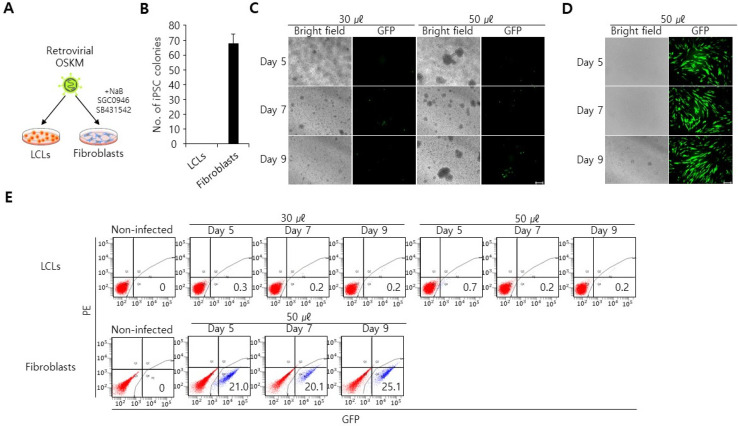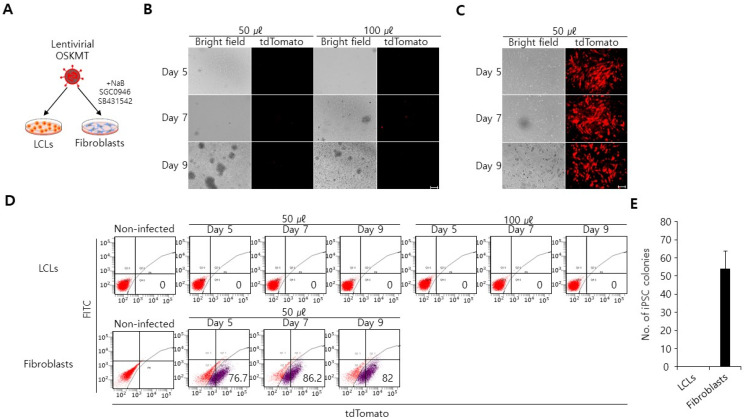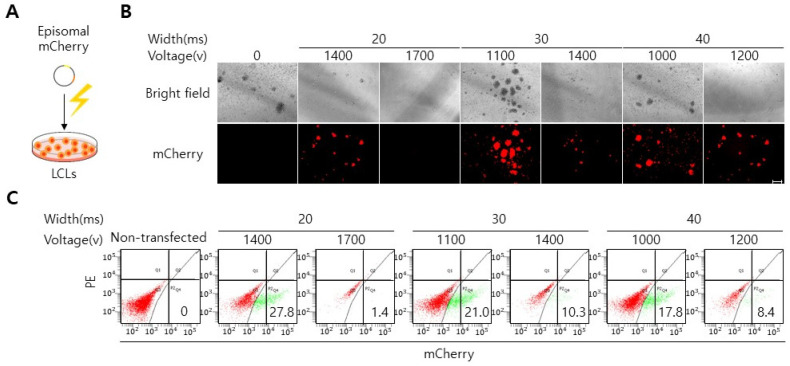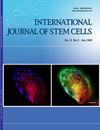Generation of Induced Pluripotent Stem Cells from Lymphoblastoid Cell Lines by Electroporation of Episomal Vectors.
IF 2.5
4区 医学
Q3 CELL & TISSUE ENGINEERING
引用次数: 0
Abstract
Background and Objectives Lymphoblastoid cell lines (LCLs) deposited from disease-affected individuals could be a valuable donor cell source for generating disease-specific induced pluripotent stem cells (iPSCs). However, generation of iPSCs from the LCLs is still challenging, as yet no effective gene delivery strategy has been developed. Methods and Results Here, we reveal an effective gene delivery method specifically for LCLs. We found that LCLs appear to be refractory toward retroviral and lentiviral transduction. Consequently, lentiviral and retroviral transduction of OCT4, SOX2, KFL4 and c-MYC into LCLs does not elicit iPSC colony formation. Interestingly, however we found that transfection of oriP/EBNA-1-based episomal vectors by electroporation is an efficient gene delivery system into LCLs, enabling iPSC generation from LCLs. These iPSCs expressed pluripotency makers (OCT4, NANOG, SSEA4, SALL4) and could form embryoid bodies. Conclusions Our data show that electroporation is an effective gene delivery method with which LCLs can be efficiently reprogrammed into iPSCs.



电穿孔Episomal载体诱导淋巴母细胞生成多能干细胞。
背景和目的:来自疾病患者的淋巴母细胞样细胞系(LCLs)可能是产生疾病特异性诱导多能干细胞(iPSCs)的有价值的供体细胞来源。然而,从LCLs中生成iPSCs仍然具有挑战性,因为尚未开发出有效的基因传递策略。方法和结果:在这里,我们揭示了一种有效的基因传递方法,专门针对LCLs。我们发现lcl似乎对逆转录病毒和慢病毒转导具有难治性。因此,慢病毒和逆转录病毒将OCT4、SOX2、KFL4和c-MYC转导到lcl中不会引发iPSC集落的形成。然而,有趣的是,我们发现通过电穿孔将oriP/ ebna -1为基础的episomal载体转染到lcl中是一种有效的基因传递系统,使lcl能够产生iPSC。这些iPSCs表达多能干细胞(OCT4、NANOG、SSEA4、SALL4),并能形成胚状体。结论:我们的数据表明,电穿孔是一种有效的基因传递方法,可以有效地将lcl重编程为iPSCs。
本文章由计算机程序翻译,如有差异,请以英文原文为准。
求助全文
约1分钟内获得全文
求助全文
来源期刊

International journal of stem cells
Biochemistry, Genetics and Molecular Biology-Cell Biology
CiteScore
5.10
自引率
4.30%
发文量
38
期刊介绍:
International Journal of Stem Cells (Int J Stem Cells), a peer-reviewed open access journal, principally aims to provide a forum for investigators in the field of stem cell biology to present their research findings and share their visions and opinions. Int J Stem Cells covers all aspects of stem cell biology including basic, clinical and translational research on genetics, biochemistry, and physiology of various types of stem cells including embryonic, adult and induced stem cells. Reports on epigenetics, genomics, proteomics, metabolomics of stem cells are welcome as well. Int J Stem Cells also publishes review articles, technical reports and treatise on ethical issues.
 求助内容:
求助内容: 应助结果提醒方式:
应助结果提醒方式:


